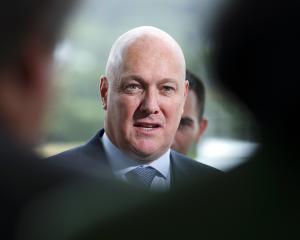While a week is sometimes described as a long time in politics, 24 hours can be too.

The Government introduced a tax Bill into Parliament which included a provision for GST on the fees of managers of KiwiSaver and other managed funds. Within 23 hours, the plan had been jettisoned.
Labour had blundered and dug itself into a hole. Sensibly, whatever any merits of the policy, it stopped digging swiftly.
Despite the legions of communications advisers and Prime Minister Jacinda Ardern’s communications background and skills, Labour was caught out. Somehow, Revenue Minister David Parker and others failed to see the likely reaction.
Perhaps the GST on fees was seen as just a technical change?
The plan had some value. Why not fix the apparent anomaly when GST is charged on other services? Some smaller providers often had to pay GST, while large Australian providers did not.
Naturally, the media, once they figured out the figures, splashed the numbers and the impact, for the benefit of all in the scheme.
And naturally, National, scarcely able to believe the manna from Mr Parker, cried "stealth, wealth tax" and "they are coming after your KiwiSaver".
Interestingly, Act New Zealand was subdued. Leader David Seymour, while pushing for lower taxes overall, could see virtue in more consistency.
Labour had been consulting the funds’ industry since 2020 and had garnered differing responses.
Perhaps, because the actual dollar amounts are relatively small for average balances in the first years, the impact was not properly recognised. As well, the policy would not start until 2026.
However, Inland Revenue had predicted an extra $225 million a year in tax from that first year, rising steadily after that.
It said the extra tax would largely flow to higher fees. That, of course, means, less in KiwiSaver and managed fund balances.
Someone, somewhere, should have been alert to the politics and effect of the change.
If it was to take place, the Government should have been upfront, and the change balanced by adjustments that improved and encouraged New Zealanders in their KiwiSaver.
This all plays into the lines, even if unfairly, that an arrogant government knows best and that is wedded to taxing and spending.
Calculations that young people today would receive $20,000 to $30,000 less in their retirement totals soon headlined the news.
The Financial Markets Authority (FMA), for its part, modelled the amount sliced off by the tax by 2070 at $103 billion from KiwiSaver balances, and $83 billion off other managed funds. This is out of $4 trillion under management. Even 48 years away, many of today’s younger KiwiSavers will be alive.
Mr Parker has sounded somewhat piqued, saying the plans had been misrepresented.
"We would obviously have preferred that the people we thought would come out in support of this had. The fact that they haven’t caused us to reverse our position. We think that was the right thing to do, as the furore around this was denting public confidence in KiwiSaver."
Ms Ardern, meanwhile, was disingenuous in responding to the question: Does this have nothing to do with the public backlash?
"Oh, it is us hearing from the sector that we were looking to improve the arrangements for. So we have to hear that."
How unbelievable. The sector had already been consulted.
The U-turn had almost everything to do with the backlash, even if some of the smaller providers had wavered in their support of the change.
Politics trumped policy, and that is not necessarily a bad thing.
National, in its time, modified KiwiSaver, by eliminating the $1000 kick-start, taxing employer contributions and halving the maximum government tax credit contribution to $521 a year.
Now, not surprisingly, it is promising to leave KiwiSaver alone. Labour, caught out badly by this GST-on-fees furore, will now be on guard.
This episode illustrates how significant the level of fees is, long term, on KiwiSaver’s and other managed funds’ balances.
It, notably, demonstrates the importance of KiwiSaver to New Zealanders.
Politicians who dare mess with it do so at their peril.












